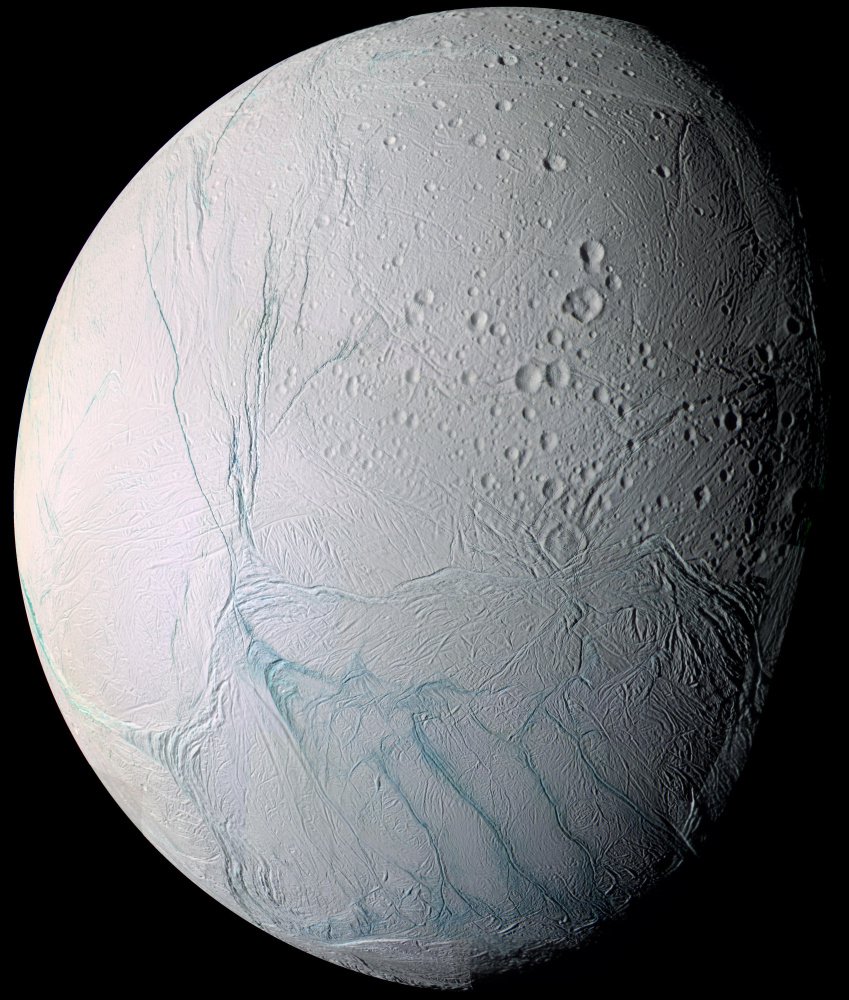The geysers of Saturn’s moon Enceladus are gushing up food for life, scientists say.
Researchers reported Thursday in the journal Science that the jets of ice and gas gushing from the moon’s south pole contain molecular hydrogen, a chemical characteristic of hydrothermal activity.
On Earth, hydrogen provides fuel for communities of organisms that live around vents on the seafloor. Its presence on Saturn’s icy moon suggests that this alien world, which harbors a saltwater ocean encased in a frozen crust, has the right conditions to give rise to microbial life.
“For a microbiologist thinking about energy for microbes, hydrogen is like the gold coin of energy currency,” said Peter Girguis, a deep sea biologist at Harvard University who was not involved in the research. “If you had to have one thing, one chemical compound, coming out of a vent that would lead you to think there’s energy to support microbial life, hydrogen is at the top of that list.”
“It makes the Enceladus ocean seem a heck of a lot more habitable than we were thinking yesterday,” agreed Ariel Anbar, an astrobiologist at Arizona State University. “And wouldn’t we like to know, is there life living there?”
Everything scientists know about biology on Earth suggests that life is irrepressible. It thrives in clouds, in caves, in lakes of meltwater buried half a mile beneath the ice sheets of Antarctica, in boiling water plumes that gush from the ocean’s deepest, darkest depths. Almost no environment is too extreme, as long as water, organic molecules and a bit of energy are available for organisms to exploit.
Enceladus provides all three. It’s looking more and more like the most habitable spot in our solar system beyond Earth, and scientists’ best target yet in the search for alien organisms.
And it might not be alone. Images from the Hubble Space Telescope suggest that plumes much like those on Enceladus are also spewing from Jupiter’s moon Europa, NASA announced Thursday.
Like Enceladus, Europa harbors a subsurface saltwater ocean and could contain organic molecules.
Copy the Story LinkSend questions/comments to the editors.



Success. Please wait for the page to reload. If the page does not reload within 5 seconds, please refresh the page.
Enter your email and password to access comments.
Hi, to comment on stories you must . This profile is in addition to your subscription and website login.
Already have a commenting profile? .
Invalid username/password.
Please check your email to confirm and complete your registration.
Only subscribers are eligible to post comments. Please subscribe or login first for digital access. Here’s why.
Use the form below to reset your password. When you've submitted your account email, we will send an email with a reset code.